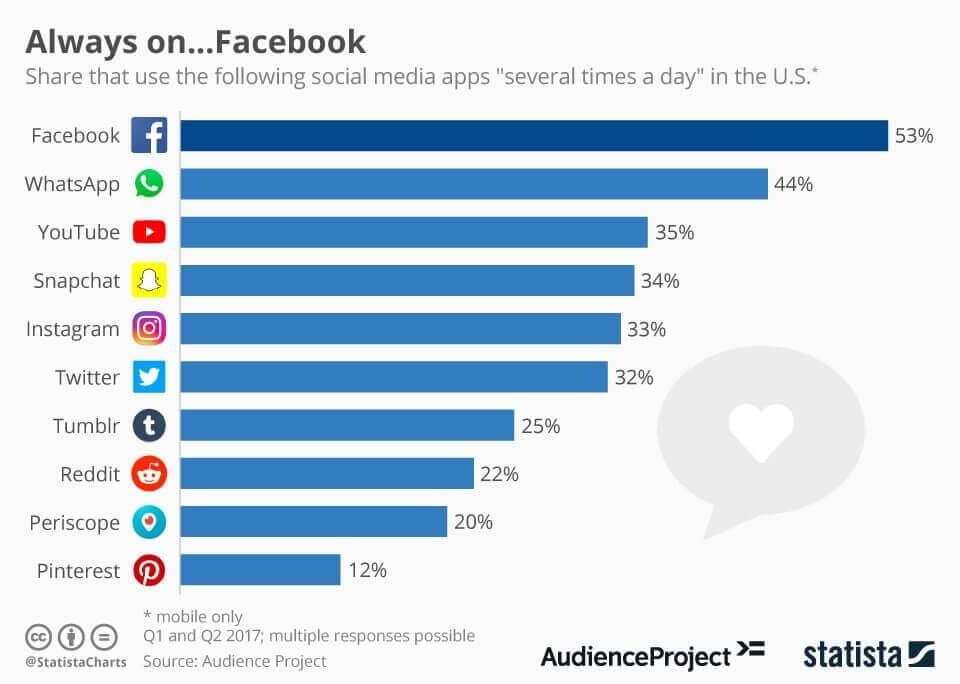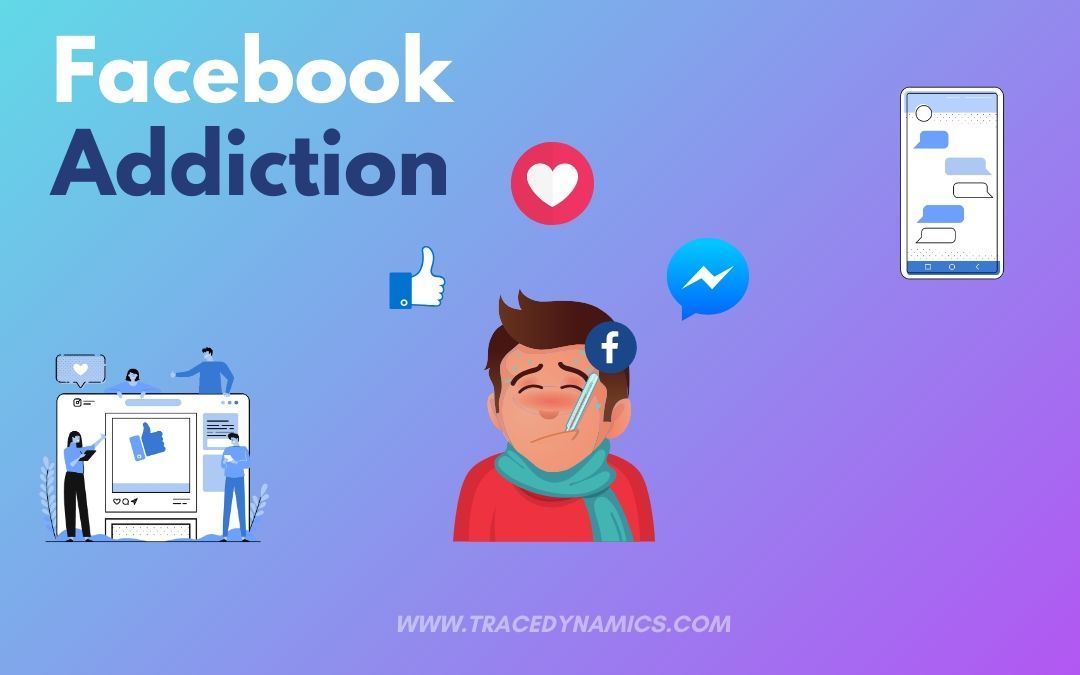In today’s digital age, a substantial number of individuals engage extensively with social media platforms like Twitter, Facebook, and Instagram. This digital interaction forms a significant part of our daily routines.
Among various social media platforms, Facebook, now a key part of Meta Platforms, often emerges as a primary focus for many, consuming a notable portion of our online activity. The rebranding to Meta symbolizes a strategic shift towards building a more immersive digital experience, yet the core addictive elements of Facebook persist.
There are instances where individuals spend an entire day on Facebook, highlighting a potential tendency towards internet addiction. This addiction manifests in various forms, aligning with the broader scope of Meta’s vision for digital interaction.
The question arises: What makes Facebook so compelling, even in its new Meta context? The platform hosts a multitude of activities that millions participate in daily, such as:
- Reviewing Notifications
- Uploading Content including Images, YouTube Videos, and Facebook Ads
- Managing Friend Requests
- Updating and Checking Status
- Engaging with Video Content
- Exploring Profile Pictures
Facebook’s journey began on February 4, 2004, when Mark Zuckerberg launched it for Harvard students. It has since grown to connect over 2 billion users worldwide, standing as a testament to its global influence, further amplified by its integration into the Meta ecosystem.
Facebook’s addictive aspects are multifaceted, encompassing elements like:
- Interacting with memes.
- Engaging with quotes.
- Participating in Facebook gaming.
- Communicating via chat.
The platform is a blend of various Advantages and Disadvantages. Its evolution under Meta continues to offer both opportunities and challenges, especially in terms of user engagement and potential addiction.
Even in settings where Facebook access is restricted, such as certain workplaces, users often seek alternative means to connect, indicating its strong pull. The recent rebranding to Meta has not diminished this allure, with the expanded virtual reality and augmented reality offerings potentially intensifying user engagement.
Concerns about Facebook’s impact on social and personal relationships are often discussed. This article delves into the symptoms of Facebook addiction and strategies for managing it, considering the broader context of Meta’s influence on our digital behaviors.
Understanding Facebook Addiction Disorder
Facebook Addiction Disorder, also known as Social Media Addiction, describes a reliance on Facebook or similar platforms that mirrors other substance abuse disorders. With the advent of Meta, this disorder may take on new dimensions, reflecting the evolving nature of our interaction with digital platforms.
Facebook Addiction Statistics
By the end of 2017, Facebook had approximately 2 billion users, with addiction becoming a significant concern. Statistics suggest a high level of compulsive engagement with the platform among adults and teens. As Facebook transitions into the broader Meta framework, these numbers could further escalate.
Facebook’s dominance as a social media platform is evidenced by over 53% of U.S residents checking it multiple times a day. Source: statista.com.
 Image credit: Statista.com
Image credit: Statista.com
Factors Behind Facebook Addiction
Human curiosity about others’ lives often drives frequent visits to Facebook. Recognizing and understanding the signs of addiction is essential. With Facebook’s integration into Meta’s broader vision, these factors might become more complex, driven by advanced technologies like virtual reality.
Identifying Signs of Facebook Addiction
With billions of users worldwide, Facebook addiction is a reality for many. The ease of access via smartphones and Wi-Fi has increased the time spent on social media, especially Facebook. The incorporation of NLP (Natural Language Processing) and LSI (Latent Semantic Indexing) techniques in Meta’s algorithms may further personalize and potentially deepen user engagement, making it harder to disconnect.
“As of March 31st, 2019, there are over 2.38 billion monthly active Facebook users,” reports newsroom.fb.com.
Key indicators of Facebook addiction include anxiety without access, spending excessive time on the platform, and habitual, unintentional use. In the Meta era, these signs might be accentuated by more immersive and addictive features.
Prevalence of Facebook Addiction
Assessing the exact number of individuals addicted to Facebook is challenging, but a significant portion of its user base exhibits symptoms of addiction. With Meta’s expansive approach, understanding the broader implications of social media addiction becomes increasingly important.
Strategies to Mitigate Facebook Addiction
Addressing Facebook addiction involves self-awareness, habit alteration, and identifying underlying causes. Effective strategies include acknowledging the issue, time management, notification control, understanding addiction roots, increasing access difficulty, using time-restriction apps, and curating your feed to reduce time wastage. In the context of Meta, staying informed about how emerging technologies might affect our social media habits is crucial.
Facebook Addiction in Business Context
Business users on Facebook, while often needing extended use for professional purposes, can also exhibit addiction signs. Distinguishing between necessary and excessive use is crucial for such individuals, especially as Meta’s platform evolves to offer more business tools and immersive experiences.
Concluding ThoughtsWith technological advancements, Facebook has become a significant part of our lives, facilitating connection and communication. However, when it starts to disrupt real-life interactions and daily tasks, it becomes a concern. Tools like the Bergen Facebook Addiction Scale can be helpful in evaluating and addressing addiction tendencies.
To effectively manage Facebook habits, integrating the discussed strategies into daily life is crucial. This approach aids in overcoming addiction and enhances overall mental well-being and social interactions.
We welcome your insights and experiences on this topic, especially in light of the evolving landscape under Meta.
Frequently Asked Questions
What are the common signs of Facebook addiction?
Signs include spending excessive time on Facebook, feeling anxious when not using it, and neglecting other activities or responsibilities.
Can Facebook addiction impact mental health?
Yes, Facebook addiction can lead to feelings of anxiety, loneliness, and can negatively impact overall mental health.
How much time spent on Facebook is considered addictive?
There’s no specific time limit, but addiction may be indicated when Facebook use consumes a significant part of your day and interferes with daily life.
Is constantly checking Facebook a sign of addiction?
Frequent, compulsive checking of Facebook throughout the day can be a sign of addiction.
Can Facebook addiction affect relationships?
Yes, excessive use of Facebook can lead to neglect of personal relationships and real-life social interactions.
Are there physical symptoms associated with Facebook addiction?
Physical symptoms can include eye strain, headaches, and sleep disturbances due to prolonged screen time.
Is it normal to feel anxious if I can't access Facebook?
Feeling anxious or restless when unable to access Facebook can be a sign of dependence or addiction.
How do I know if I’m spending too much time on Facebook?
If you find that most of your leisure time is spent on Facebook, or if you neglect other activities or duties in favor of Facebook, it might be excessive.
Can excessive Facebook use lead to social isolation?
Yes, spending too much time on Facebook can lead to decreased real-world interactions and potential social isolation.
What should I do if I think I’m addicted to Facebook?
Consider reducing your usage, setting strict time limits, and seeking help from a mental health professional if needed.

